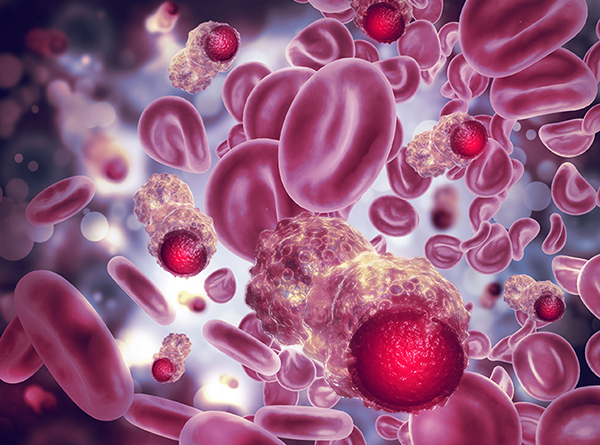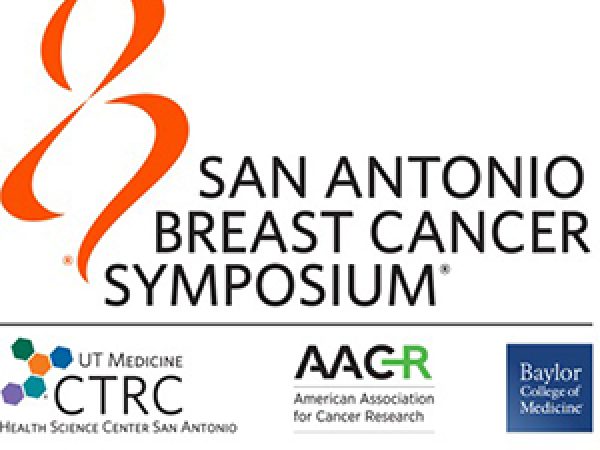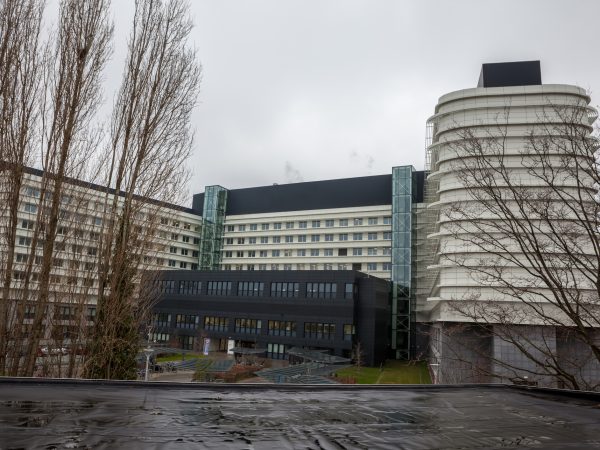AACR Meetings Feature Latest Advances in Blood Cancer Research
Cancers of the blood can initiate in a variety of cells, including in white blood cells (giving rise to lymphoma and leukemia) or in plasma cells (giving rise to myeloma). In 2020 alone, there were an estimated 1.3 million new blood cancer cases worldwide, which accounted for more than 5 percent of all cancer diagnoses that year.
Each year, cancer researchers, industry representatives, patient advocates, and other stakeholders come together at the AACR Annual Meeting to discuss the latest research and treatment advances for cancer. This year’s Annual Meeting, held online April 10-15, featured advances in blood cancer research across various disciplines, including basic mechanistic studies, development of novel immunotherapy approaches, and clinical trials to evaluate investigational treatments. Two of the studies presented at the meeting were concurrently published online in the AACR journal Blood Cancer Discovery.
The first of these studies, presented by Dongqing Yan, PhD, during a poster session on molecular targets, uncovered a potential therapeutic strategy for acute myeloid leukemia (AML). The relative five-year survival for patients with this cancer is a grim 29.5 percent. While most patients with AML initially respond to standard treatment, resistance and/or relapse are common. Cellular metabolism has emerged as a promising therapeutic target due to the vast reprogramming of metabolic pathways observed in cancer cells.

In this preclinical study, Yan and colleagues examined the role of sirtuin 5 (SIRT5), a lysine deacylase that regulates multiple metabolic pathways, in AML progression and survival. They found that depletion of SIRT5 led to reduced cell proliferation and greater cell death in primary AML cell lines, but not in normal cells, independently of genotype. Similar findings were observed when SIRT5 activity was inhibited by NRD167, a selective SIRT5 inhibitor developed by Yan and colleagues. These preclinical results indicate that SIRT5 activity may be critical for AML progression and identify SIRT5 as a promising therapeutic target, according to Yan.
“Ongoing efforts aim to establish a high-throughput assay for screening small molecules for SIRT5-selective inhibition and to determine how SIRT5 intersects metabolism in health and disease,” Yan noted.
Read the full study in Blood Cancer Discovery.
Another study from the Annual Meeting, presented by Andrea Marra, PhD, during a poster session on cytogenetics and clinical molecular genetics, examined clonal hematopoiesis in classical Hodgkin lymphoma (cHL). Clonal hematopoiesis, or the expansion of hematopoietic stem cells with the same genetic mutation, has been shown to increase the risk for many blood cancers; however, the impact of clonal hematopoiesis in the development of cHL is poorly understood.
In this study, Marra and colleagues sequenced tumor and matched normal blood or lymph node cells from 40 patients with cHL. Clonal hematopoiesis was detected in cHL from five patients and was spread extensively throughout the non-neoplastic tissue microenvironment in three patients. In these three patients, mutations in DNMT3A, KRAS, or DNMT3A plus TET2 comprised 33 percent, 92 percent, or 60 percent of cells in the tissue microenvironment, respectively. While DNMT3A/TET2 mutant clonal hematopoiesis seeded the neoplastic clone, clonal hematopoiesis of the DNMT3A mutant did not initiate the neoplastic clone despite accounting for over 90 percent of certain blood cell populations. cHL in all three patients with extensive clonal hematopoiesis spread progressed on first-line chemotherapy, compared to 31 percent of patients without extensive clonal hematopoiesis. Together, the results of this study indicate that clonal hematopoiesis may or may not give rise to neoplastic clones, can spread through the tumor microenvironment, and may impact prognosis.
Read the full study in Blood Cancer Discovery.
As an additional step to help promote blood cancer research, the AACR hosted its first-ever meeting devoted entirely to myeloma on April 26-27. The AACR Virtual Meeting: Myeloma: Discovery to Therapy featured sessions on disease progression, genomics and epigenetics, the tumor microenvironment, novel therapies, and treatment resistance. The meeting also included a panel discussion on the impact of the COVID-19 pandemic on clinical trials and drug development for myeloma, which was moderated by Kenneth Anderson, MD, FAACR, a cochair of the conference and an editor-in-chief of Blood Cancer Discovery.
Further advances in blood cancer research will be presented in June at the International Conference on Malignant Lymphoma, which is co-sponsored by the AACR. The deadline for regular registration is May 31.



